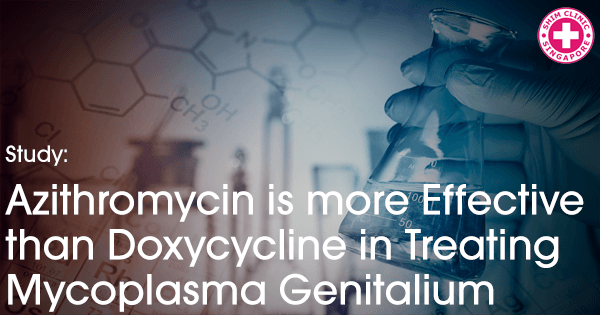More and more sexually transmitted diseases have been discovered over the past century. One such STD is Mycoplasma Genitalium which has become a well-established disease with focus being pointed at its therapy and complications.
The STD was first discovered in 1980 from two men diagnosed with non-gonococcal urethritis (NGU). Several studies have shown that Mycoplasma Genitalium has an association with urethritis in men and cervicitis, pelvic inflammatory disease, urethritis and endometritis in women.
Mycoplasma Genitalium is known to reject certain medicine for its treatment and accept some. It is due to this peculiar behavior of the STD that Carin Anagrius, Britta Lore, and Jørgen Skov Jensen from Department of Venereology, Falu lasarett, Falun, Sweden, Department of Clinical Microbiology, Falu lasarett, Falun, Sweden, Statens Serum Institut, Microbiology and Infection Control, Sexually Transmitted Infections, Research and Development, Copenhagen, Denmark decided to conduct a study in Sweden on the most efficient medicine to treat it.
The Study Parameters
The main goal of the study was to compare the efficacy of two drugs and how they are administered:
- Doxycycline 200mg given on the first day followed by 100 mg on the second day through to the ninth day.
- orally administered azithromycin 1g as a single dose
- Extended azithromycin therapy that includes 500mg orally the first day followed by 250mg orally daily on the second day through to the fifth day.
The study also aimed to examine the development of macrolide resistance in their local population during current years.
The study was carried out through a case study of patients diagnosed with Mycoplasma Genitalium who visited the Department of Venereology at the Central Hospital in Falun, Sweden.
The cases examined were on individuals who tested positive for the infection from January 1998 up to July 2005. A long term follow up study was carried out in 2009.
Study Specimens
Specimens for the study were collected on the following basis:
- from patients with symptoms or signs of genital tract infection
- from patients or their partners who exhibited symptoms and signs of urethritis and cervicitis
- from patients who were suspected to have complications including epididymitis, bleeding that was irregular and pain in the lower abdominen.
In addition, all patients were routinely tested for M. Genitalium whether they exhibited any symptoms or not between January 2003 and July 2004.
Clinical Procedures Used
The primary treatment for urethritis and cervicitis was doxycycline 200mg day 1 and 100mg days 2 to 9 from 1998 to 2003. Single dose of Azithromycin 1g was given as a primary treatment from July 2003 to July 2005.
Extended azithromycin 500mg on the first day followed by 250mg on the 2nd to 5th day was given to patients who tested positive to M. Genitalium when no other treatment was given initially and in cases where a partner had been found to have the infection. Extended secondary azithromycin was given after doxycycline treatment failed.
Important Results
A total of 8450 tests for M. genitalium were analysed from 4095 female patients and 4355 male patients. From the female patients, 195 tested positive for the STD while the male patients who tested positive and 212.
The nine day dose of Doxycycline was given to 216 patients. From these, 73 of them tested negative after completion of medication.
1g Azithromycin single dose was administered as primary treatment to 134 patients. After treatment, 107 of them tested negative.
Primary treatment using extended azithromycin 1.5g was administered to 35 patients. In this case, 26 patients tested negative after treatment.
Second-line treatment with extended azithromycin 1.5g was given to 72 patients. 52 of them later tested negative.
These results proved that azithromycin is more efficient than doxycycline in eradicating M. Genitalium. Both the single dose and the extended treatment of azithromycin were notably more effective compared to doxycycline.
A single dose of azithromycin was however found to lead to the development of macrolide resistance in M Genitalium.
Our Conclusion
The extended azithromycin has been proved to be the best medicine to eradicate Mycoplasma Genitalium. It is important for key stakeholders in the health sector to get hold of this knowledge as it may help towards efforts of dealing with the well-established STD across the world.
Read the full study here: http://journals.plos.org/plosone/article?id=10.1371/journal.pone.0061481

